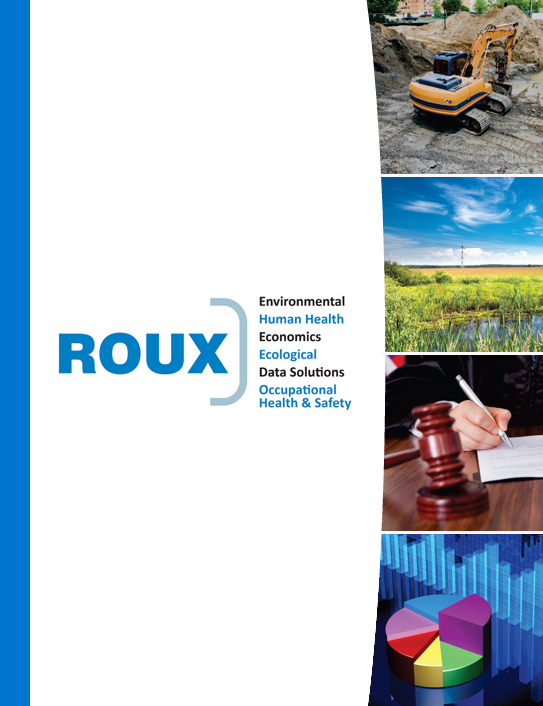Roux Insurance Update: NJDEP Proposes Major Revisions to Remediation Standards
To help keep you up to date on current developments, Roux is providing this email to summarize topics pertinent to the insurance industry that you may find useful.
NJDEP Proposes Major Revisions to Remediation Standards
The New Jersey Department of Environmental Protection (NJDEP) has proposed several major revisions to their statutory remediation standards rules (N.J.A.C. 7-26D). The proposed revisions were published on April 6, 2020 and were open for public comment until August 5, 2020. The proposed revisions are likely to be signed in April 2021 and take effect in late spring/early summer 2021, with a phase-in period.
The proposed revisions include:
- Impacts to groundwater, soil leachate, and vapor intrusion/indoor air screening criteria are proposed to become legally enforceable standards rather than screening levels. This means the screening levels will now have the force of regulation.
- The Direct Contact Soil Remediation Standards are proposed to be split into two separate exposure pathways: ingestion-dermal and inhalation. This could have a significant impact on soil volatile organic compound (VOC) remedies as inhalation exposure is typically more sensitive (i.e., lower) than direct contact exposure.
- Expand the existing Remediation Standard process for interim, alternative, and remediation standards to include soil and soil leachate for migration to groundwater (soil and soil leachate), indoor air, and groundwater. In the past, this applied to interim standards for groundwater used as a drinking water source, making the interim standards enforceable until the standard was formally promulgated. This effectively makes all interim standards immediately enforceable for media where direct human exposure is possible.
- Adding definitions of “residential” and “non-residential” based on property use, which were previously undefined. Residential properties would be defined as residences, private and public schools, charter schools, and childcare centers; and non-residential properties as properties used for commercial or industrial purposes.
Included with revisions, the Soil Remediation Standards are proposed to be changed significantly. Along with these changes, the NJDEP is proposing to:
- Regulate 17 previously unregulated compounds in soil, including 1,4-Dioxane and Extractable Petroleum Hydrocarbons (EPH);
- Deregulate 11 compounds in soil, due to toxicological data that they no longer support regulating as a contaminant;
- Update to more stringent Soil Remediation Standards for 26 compounds in at least one of the non-residential exposure pathways and for 19 compounds in at least one of the residential exposure pathways;
- Update to more lenient Soil Remediation Standards for 71 compounds in both non-residential exposure pathways and 94 compounds in residential soil exposure pathways; and
- Update to more stringent Remediation Standards by an Order of Magnitude for four compounds for residential exposure pathways, four compounds for non-residential exposure pathways, one compound for the migration to groundwater exposure pathway, and one compound for the residential and non-residential vapor intrusion indoor air exposure pathway.
If you have any questions, or would like additional information, please click on the button below.
